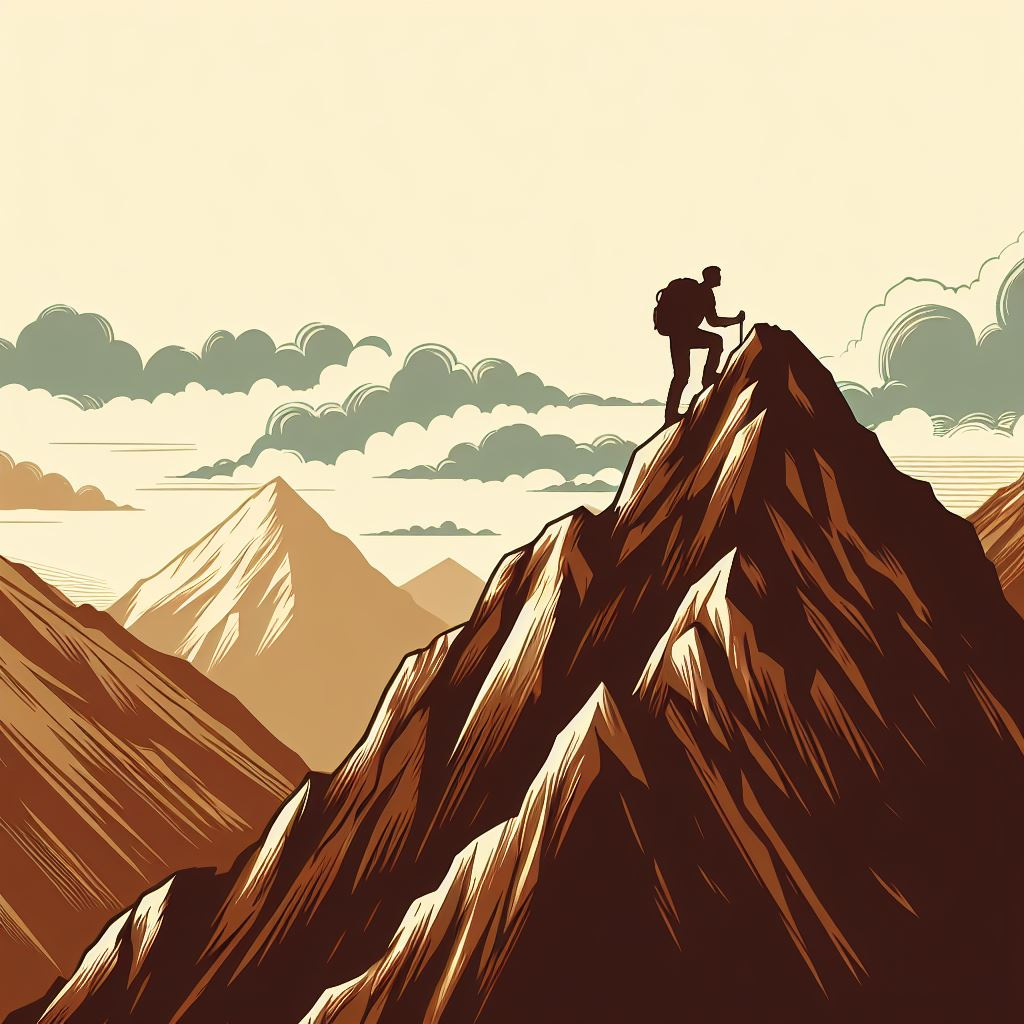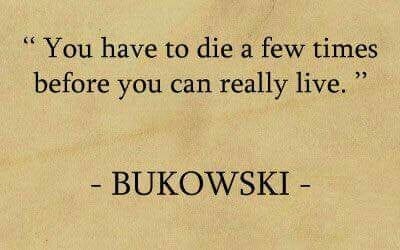To the deep thinkers,
Welcome to the Deep Thinkers Newsletter: A collection of essays dedicated to going beyond the surface.
If you’re new here, check out the Deep Thinkers archive.
There is an art to being uncomfortable, and those who learn the art become unbreakable.
A comfortable life is a privilege, not a right. The pressure cooker that is human existence is indiscriminate. Nobody is safe from the claws of adversity. It is through adversity that we become all that we have the potential to be. It is the fire that forges us. It is the unrelenting and sometimes ruthless coach who pushes us to see just how far we bend before we break.
And when we inevitably break, do we have what it takes to build ourselves up again? Or do the cracks and missing pieces make it impossible to move forward?
You see, the trials you endure can make you stronger if you let them. They can even serve as lanterns lighting a path you never thought to travel—a path that can serve as the strength you need to not only endure but thrive when you’re pushed out of your element.
You’re stronger and more capable than you think. You didn’t make it this far because things were easy. You were molded by the love and joy as well as by the pain and misfortune. And still, you bounced back, you regrouped, you resurrected.
Your response
Truth be told, most of us are wired to avoid discomfort.
We want everything to unfold in our lives according to our plans. We have specifications for how things should be and how they should go and tense up or break down if things veer off course.
A flat tire. A termination notice. Getting dumped.
None of it feels good, and depending on what else isn’t going right, one more block added to the tower could bring the entire structure crashing down. It is in these moments that our resiliency is being tested. And the more we answer the call (dusting ourselves off and facing whatever comes next), the stronger we become.
Many of the things that happen to us are outside of our control and we have to come to terms with this reality. But it’s not all hopeless. Because while there is much that is outside of our control, what we do control is how we respond in the aftermath.
Former Roman emperor and Stoic philosopher Marcus Aurelius once said:
If you are distressed by anything external, the pain is not due to the thing itself, but to your estimate of it; and this you have the power to revoke at any moment.
The more you try to stay comfortable, the further you travel from your potential for greatness. The game of life requires discomfort. It requires failure. It demands that we become better versions of ourselves as we continuously emerge from one cataclysmic moment after another.
The path of the victim
When I was 16, my jaw was shattered during basketball practice and I missed all but four games that season. By the summer I’d recovered physically, but psychologically, I was far from healed. My joy for the game of basketball was gone and it would remain out of reach for years.
My biological father left when I was still a baby and I haven’t seen him since. His absence left a void—one that I still feel to this day. There are many things I’ve had to learn about how to be a man through trial and error. I felt lost and afraid throughout my adolescence and early adulthood, and I’ve had to learn to be a man on my own.
For as long as I can remember, I’ve carried these experiences with me like a weighted vest. They’ve pulled at me and latched themselves to my identity, making me angry. And so I began to see myself as a victim.
I told myself these experiences—experiences that were outside of my control—were why I couldn’t get my life together.
But you see, my life wasn’t depressing; it was my interpretation of my life that was depressing. I created a narrative about my life and what I’d experienced—a narrative that pulled me into an abyss of self-loathing, misery, and shame.
All I could focus on was what I didn’t have—the things that hadn’t worked out.
But my struggles built a resilient, self-motivated, and self-reliant version of myself, even though I couldn’t see it that way when I was younger.
Because of how I grew up I don’t expect to be handed anything. I understand that sometimes, no matter how much you prepare and hope and pray, some things just won’t go how you want them to. And that’s okay. That’s life.
But it took me so long to truly understand this. For years I blamed my life circumstances on my failures and shortcomings. I retold my story and in it, I the protagonist, was the victim. I was the one that’d been kicked to the side. I was the one that should be pitied.
This method of thinking only served to hold me back rather than lift me up.
To view yourself as a victim is to approach life from a place of weakness. Being a victim and being victimized are two distinct things. Being victimized is outside of your control. But identifying as a victim is 100% in your control.
I was victimized when I was young and there was nothing I could do to change that fact. But I could change my view of what happened to me, what it taught me, and how to make sure I don’t pass on the same traumas to my kids one day.
Those who are stuck within a victim’s mentality shrink in the face of obstacles, choosing instead to only see what has gone wrong—meanwhile remaining blind to all that has gone right. And many are unwilling to engage fully with the path of healing because it is difficult and requires accountability and ownership.
You are not to blame for the times that you were abandoned, or the times you were violated. The traumas from your youth are not your fault. But it is your responsibility to heal from these traumas. The cycle of pain can end with you. But first, you must shed your victim mentality.
The other side
When you prove to yourself that you can overcome your obstacles and heal from your traumas, you become more confident, self-reliant, resourceful, patient, and optimistic. In other words, you’re increasing your attributes, just like in a video game.
Your brain will try to shield you from the pain and discomfort that comes from healing, but you must face it all head-on. Avoidance only leads to more pain in the future.
Life is about moving forward despite the trials many of us have been so unfortunate to endure. It’s about looking back on your struggles—those moments when you didn’t give up—and drawing the necessary strength to keep going.
Without a positive father figure in my life, I had to learn to become self-sufficient. I couldn’t sit in one place forever, feeling bad for myself. I had to move forward and live my life.
If you struggle with a victim mentality, then viewing life events through an objective lens will be tough initially. You’ll likely feel a lot of resistance, but it all comes down to how you speak about your experiences to yourself.
Learning to be uncomfortable and looking at events objectively are invaluable skills. They can be learned. They can then be developed and strengthened over time.
As humans, we can only do so much when stacked up against the might of the Universe. But what we always have, no matter what we’re going through, is the ability to assign meaning to our experiences. There’s a power that lies in learning how to be uncomfortable.
Grab hold of that power, and nothing can break you.
What stood out to me this week:
We don’t just live one life. We go through phases and eras. Our beliefs change as well as our friends and the people we are romantically involved with. To know yourself you must go through these periods and reflect on them. Reflect on where you’ve been and what you’ve learned along the way. It is through these peaks and valleys of living and dying, of creating an image and then watching it dissolve that we get to know ourselves. And it is those who know themselves who are truly alive.
🎵Song of the week:
Thanks for reading. If this post resonated with you, I’d love to read your thoughts in the comments below.
Much love,
- Jon ♾️





